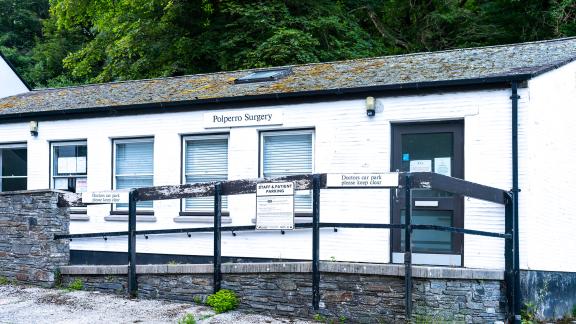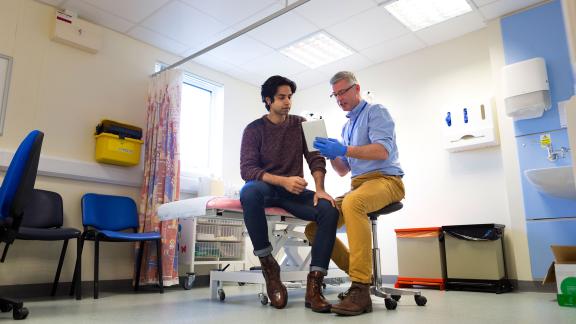PCN networks: part of the bigger picture

Not only is it time that the health and care system really changed, but behaviours must also change to support it, writes Karen Higgins.
Those of us who have worked in or with the NHS for years risk becoming immune to change, in fact we may even have ‘herd immunity’ to the process. Only in this scenario it’s nothing to celebrate. We remember last time and the time before - once the furniture had been rearranged and a few new titles put in place, everything felt pretty much like it had always been. Now, as before, we can let this one wash over us; why will it be any different?
Time to shift the focus
The difference is that now it is critical that we transform. For years we have been trying to stem the flow of people coming through the NHS’s two open doors: general practice and A&E. This is never going to happen and it’s wrong. When people are scared, worried, ill, in pain, they do the right thing and they seek help from a trusted source, even if that source is not quite the right one. Even worse, there are many people lost in the crowd who either can’t find the door or don’t know they should perhaps be looking for it. Time then to shift the focus towards creating a service behind those doors that meets the needs of the people walking through them, and also to find those who need additional guidance and support – an integrated care system (ICS).
Broadening horizons
When we put the title ‘ICS’ officially in place, this will not automatically create an integrated care system and if the chairs and tables are beginning to feel comfortable then it’s time to question what we are doing. Becoming truly integrated, systems will feel messy, chaotic, and unfamiliar because human emotions are involved, and most of us will seek to create environments that are comfortable and safe, full of stuff we know and understand. It may be easy to achieve a consensus of opinion if we only hang out with people who look and sound like us, but we will make the mistake of believing everyone thinks like us. We also risk repeating old mistakes without fresh ideas.
We need compassionate and collaborative voices that respect the different experience and knowledge that partners bring to the table
Forming the structures around integrated care partnerships, a phrase that is becoming all too common is, “We want a strong voice for *******” (fill that gap with just about any sector, primary care, voluntary sector, mental health, acute care). But since when was strong automatically a good thing? Bullies can be strong, a cage can be strong. We need compassionate and collaborative voices that respect the different experience and knowledge that partners bring to the table and are curious about what can be done together.
Working as an integrated care system
Achieving an integrated care system will take years, not a few months and the authority to function under a new name. This is all about behavior, thinking, feeling and being different. If the same familiar faces are around the strategy planning table then it’s time to question what is happening, because right now this should be feeling really uncomfortable like going to a wedding and finding yourself on a separate table to your friends; to enjoy a two hour meal and speeches is going to take some energy and effort.
Look at the language being used and take a moment to think about what it means:
- collaborative
- integrated
- partnership
- multi-disciplinary team.
There is so much focus on structures and governance when what we actually need is to be looking at is behaviors. If instead of creating boards and committees, you started with a small problem and asked: “Who is up for helping me solve this?” Who would join you in a non-transactional conversation? It would be the curious and compassionate innovators.
Throughout all our networks we need to be interested in the shared problems and willing to be part of the solutions
At the NHS Confederation we want to evolve into a way of working that facilitates the development of productive integrated working, and supports our members to be the entrepreneurs, learning from diverse voices and leading transformation. We recognise the wealth of talent in the people we work with from across federations and primary care networks and we need to ensure that our own structure is conducive to collaborative ways of being. This ambition is not only for primary care, but throughout all our networks we need to be interested in the shared problems and willing to be part of the solutions.
Karen Higgins is assistant director of the NHS Confederation’s PCN Network. Follow her on Twitter @KarenellaB



